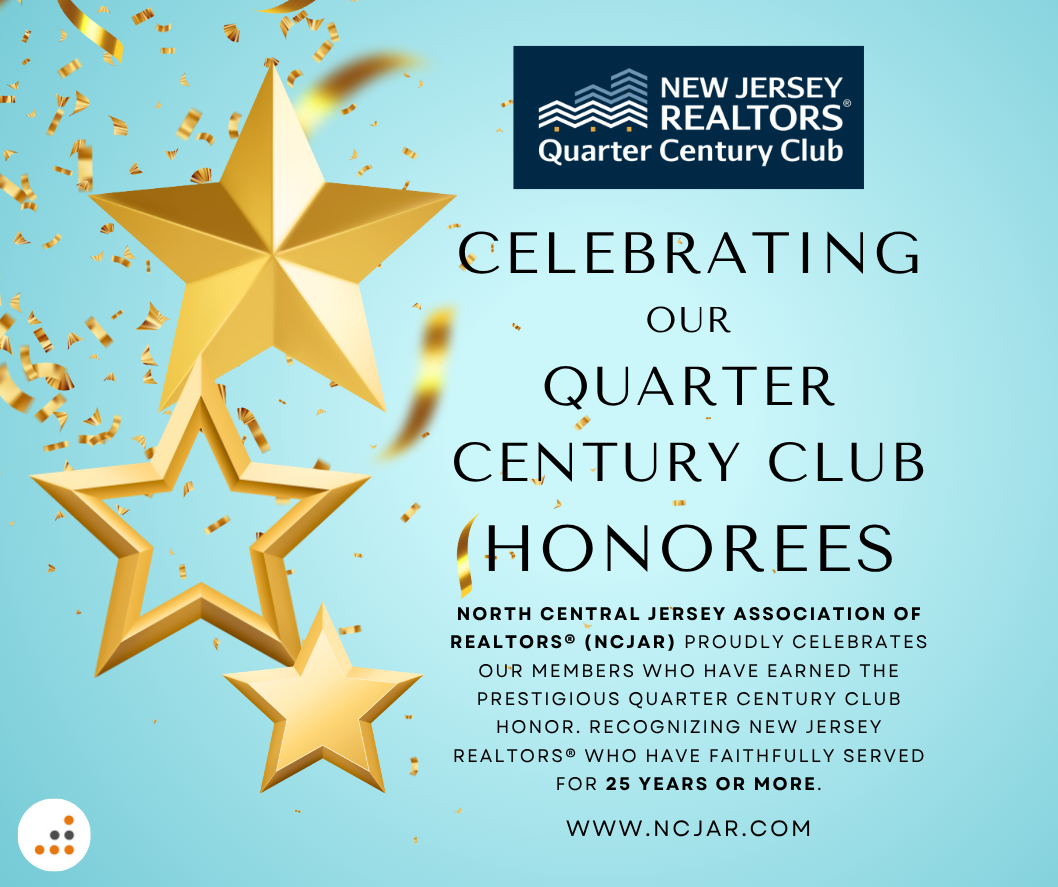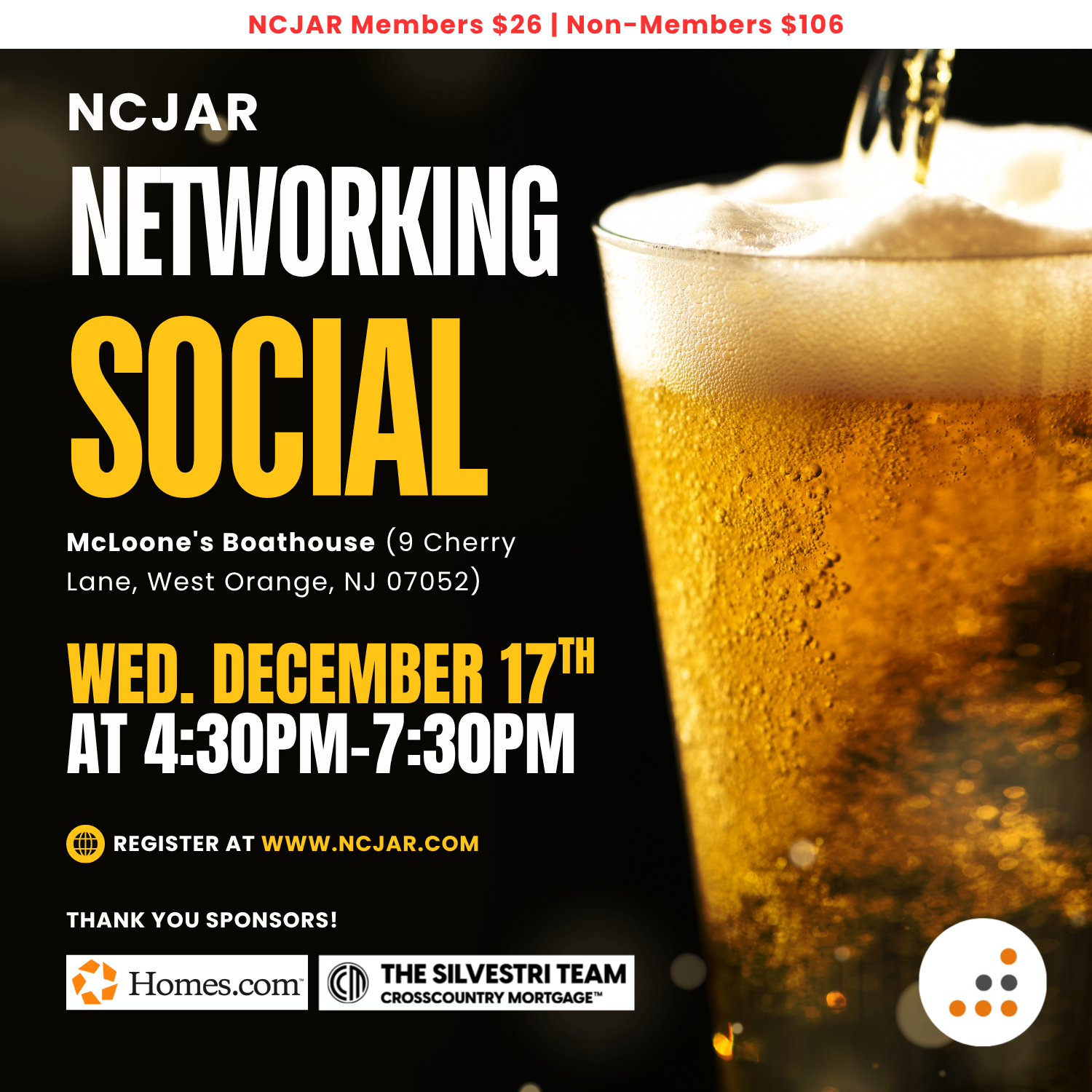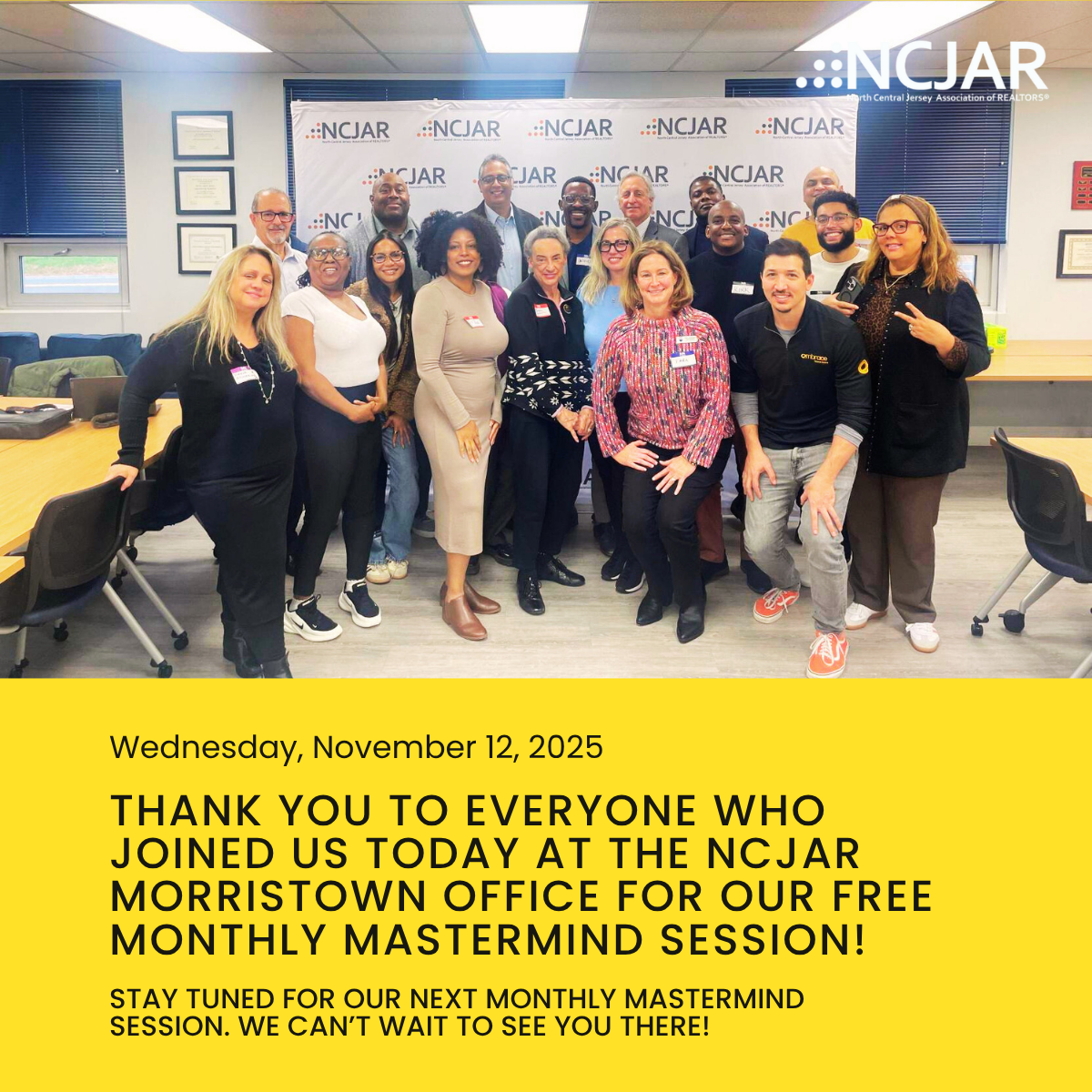NCJAR News
 North Central Jersey Association of REALTORS® (NCJAR) is proud to recognize and celebrate our distinguished members who have achieved the prestigious Quarter Century Club honor, an acknowledgement reserved for New Jersey REALTORS® who have faithfully served as REALTORS® or REALTOR-Associates® for 25 years or more.
North Central Jersey Association of REALTORS® (NCJAR) is proud to recognize and celebrate our distinguished members who have achieved the prestigious Quarter Century Club honor, an acknowledgement reserved for New Jersey REALTORS® who have faithfully served as REALTORS® or REALTOR-Associates® for 25 years or more.
This milestone is a testament to each honoree’s unwavering dedication, professionalism, and commitment to upholding the highest standards of service in the real estate industry. Reaching a quarter century in this dynamic profession reflects not only longevity, but a deep passion for helping individuals, families, and communities thrive.
Our 25-Year honorees have contributed immeasurably to the growth, strength, and integrity of the REALTOR® community in North Central Jersey. Through market shifts, evolving technologies, and changing consumer needs, these members have demonstrated resilience, leadership, and an enduring commitment to excellence.
 Join NCJAR’s Diversity & Inclusion Committee for a festive Holiday Networking Social at McLoone’s Boathouse in West Orange on Wednesday, December 17, 2025, from 4:30 PM to 7:30 PM.
Join NCJAR’s Diversity & Inclusion Committee for a festive Holiday Networking Social at McLoone’s Boathouse in West Orange on Wednesday, December 17, 2025, from 4:30 PM to 7:30 PM.
Enjoy delicious appetizers, an open bar, and the opportunity to connect with REALTORS®, industry partners, and community leaders in a warm and welcoming setting. This event is a great way to celebrate the season, build new relationships, and strengthen our diverse real estate community.
We are proud to welcome our Diverse Partners and extend a special thank you to our event sponsors:
- Kyle Sachs – Homes.com
- Michael Silvestri – CrossCountry Mortgage
In the spirit of giving, attendees are encouraged to bring a non-perishable food item to support our community food drive.
 Thank you to everyone who joined us today at the NCJAR Morristown Office for our FREE Monthly Mastermind Session! Your energy, insights, and willingness to share made this an incredibly valuable and collaborative experience.
Thank you to everyone who joined us today at the NCJAR Morristown Office for our FREE Monthly Mastermind Session! Your energy, insights, and willingness to share made this an incredibly valuable and collaborative experience.
In an industry overflowing with new apps, platforms, and tech tools, today’s discussion helped us cut through the noise together. Our mastermind group brought forward real-world recommendations and honest agent-to-agent feedback — exactly what these sessions are all about.
What We Covered
During the session, we explored the tech tools that truly make a difference in today’s real estate market, including:
-
CRMs that agents actually rely on to track leads and stay top-of-mind with clients
 Are you ready to take the next step in your real estate career? Don’t miss your opportunity to enroll in NCJAR’s BROKER: 30-Hour Ethics & Agency course — starting TOMORROW, November 11th at 5:00 PM (Online)!
Are you ready to take the next step in your real estate career? Don’t miss your opportunity to enroll in NCJAR’s BROKER: 30-Hour Ethics & Agency course — starting TOMORROW, November 11th at 5:00 PM (Online)!
This essential course explores the critical concepts of Agency and Ethics in real estate practice. It fulfills 30 hours toward the 150-hour Broker education requirement for New Jersey Broker candidates.
Course Overview
This 30-hour program dives deep into the foundation of real estate Agency and Ethics, helping you strengthen your professional understanding and ethical standards in every transaction. Topics include:
- Ethics Defined & Obligations to Qualify
- Formation and Disclosure
- Fiduciary Duties & Legal Actions